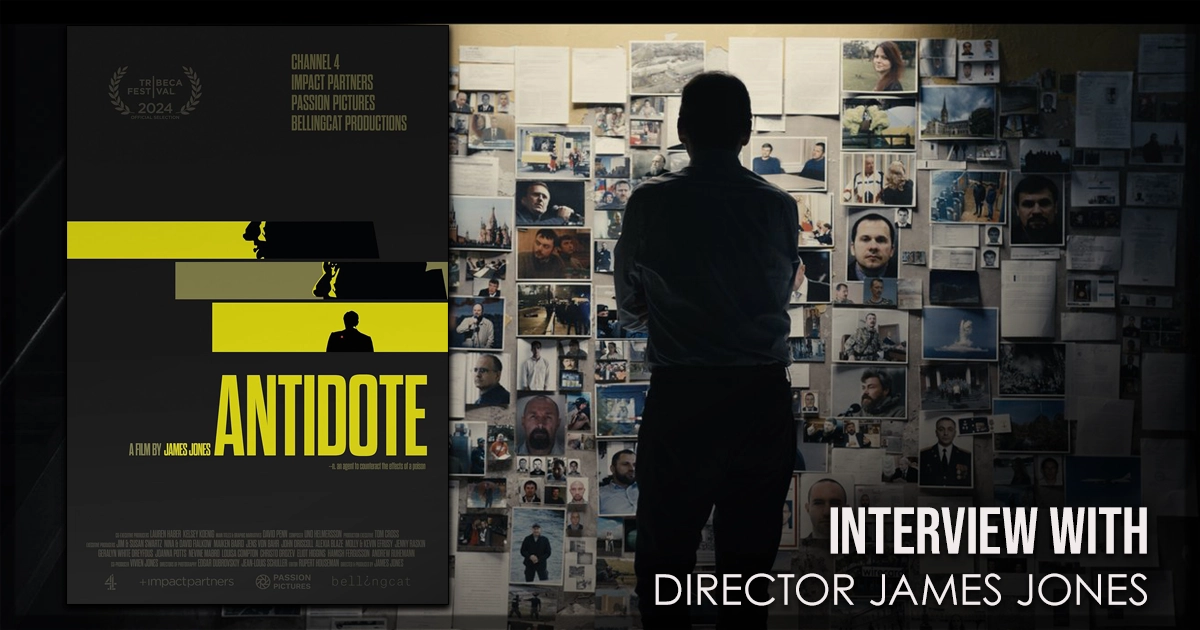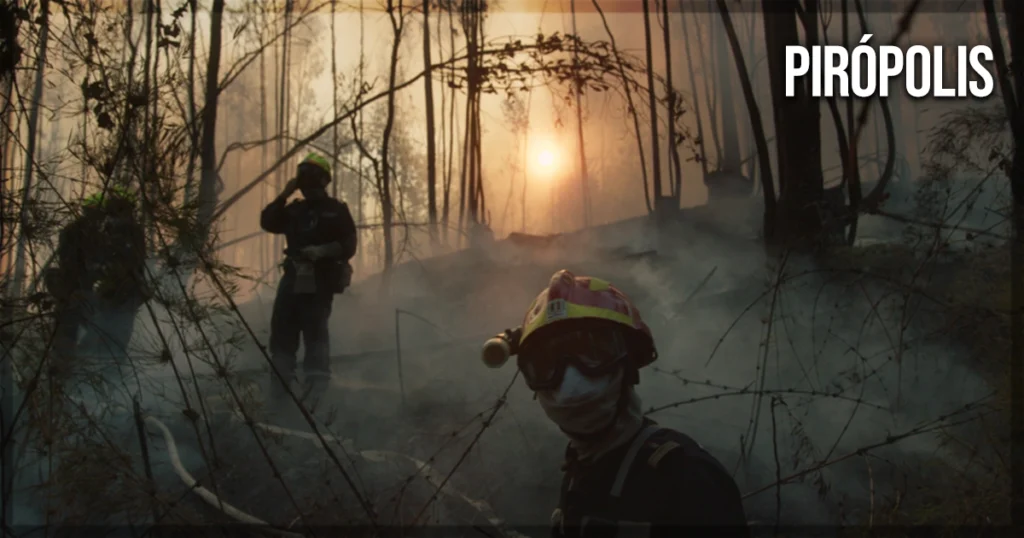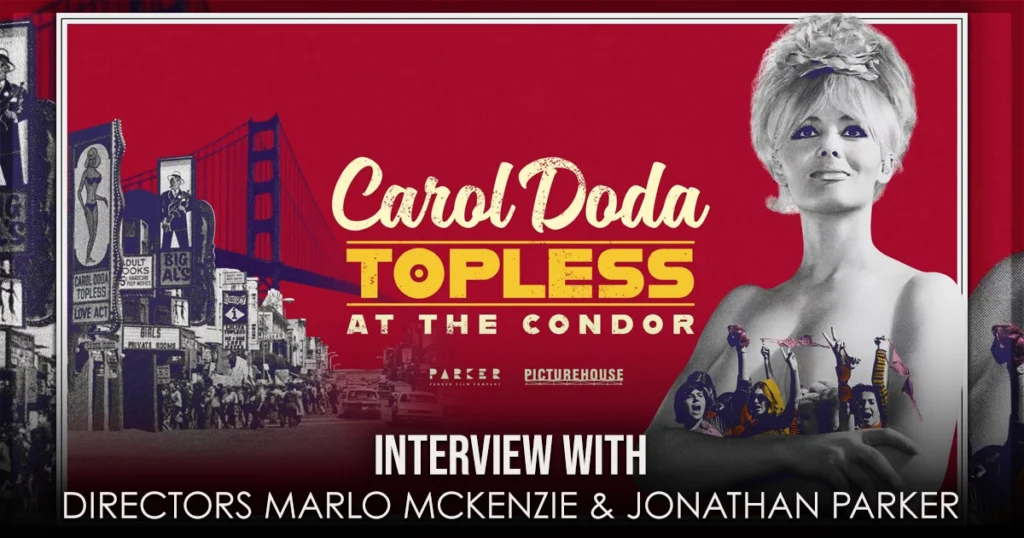In 2022, CNN and HBO came together to tell us the story about Russian opposition leader Alexei Navalny in Navalny. His story, complete with poison, jail, and more, shocked the world and informed us about what was happening in Russia. But Navalny was just a story about one man, and when the documentary ended, we saw the anti-corruption activist put behind bars for being a traitor. But what happened after Alexei Navalny went to prison? Did Russian activists stop fighting against oppression? No, and that’s what is told in James Jones’ riveting documentary Antidote.
Antidote chronicles the journey of those trying to expose Russia and Vladimir Putin’s murderous tactics. The story primarily follows two important people in Russian media: Christo Grozev, an investigative reporter from Bellingcat, and Vladimir Kara-Murza, a Pulitzer prize-winning Russian activist and author. Grozev has been very instrumental in exposing Russia’s tactics against its people and played a significant role in letting Navalny know who poisoned him. Kara-Murza criticized Russia’s attack on Ukraine and was jailed by Russian authorities.
In this hard-hitting documentary, Jones follows Grozev as they try to tell the world about Putin’s idea of anarchy. Over Zoom, I had the chance to talk with the director about the piece, which just premiered at the Tribeca Film Festival. During the interview, Jones opened up his journey to the story and about the challenges while filming Antidote. He talked about why the story was important and and why now was the right time to release it. Read on for the full discussion.
The Interview with Antidote Director James Jones
[Editor’s note: This interview has been lightly edited for clarity.]
Aayush Sharma: What initially inspired you to delve into the subject matter of Vladimir Putin’s tactics and the individuals resisting them for your documentary?
James Jones: So, yeah, it’s a good question. So I have studied Russian and lived in Russia. So I’ve like, had a long-standing fascination with it, and tried to make a film about Putin’s kind of murder apparatus like five or six years ago. But it was so hard to actually get to the truth and the facts. Then, Bellingcat came along and exposed how these assassins and spies operated. It was like a magic trick, it totally changed the game.
So then, when a couple of years ago, Bellingcat and a production company in London called Passion got in touch and said we wanted to make a film about Putin’s assassination tactics. So, I was like, ‘Oh, finally, I get to make this film’, you know, and I was so fascinated by it. Then, I guess it morphed a bit from being a retrospective film about the assassinations that they had uncovered, to being something much more present tense, because the world was changing so quickly, that it felt like we needed to lean into like, the present moment, rather than like what had happened previously.
Aayush Sharma: Navalny died in February 2024. Did his death play an important role in getting this documentary out as soon as possible?
James: That’s a good question. I mean, I think when he died, it made us think we needed to show the film soon because he was such a huge figure and him dying and even for Christo and other people in our film. It was a hugely significant moment. So I think it did encourage us to make sure we didn’t wait too long. You know, I think we’ve been planning to play at Tribeca, so I think that may have happened anyway.
But certainly, after Navalny’s death, the internal conversations were like, people need to see this soon particularly because of one of the characters in our film. Vladimir Kara-Murza is in prison in a Gulag in Siberia. He has been poisoned previously like Navalny and is not in good health. So, it felt like you know, as his wife, would say in the documentary, they worry, he could be next. You know, so, yeah, we wanted it to be seen soon.
Aayush Sharma: Apart from Christo Grozev, I think one person that Western people will get to know about is Vladimir Kara-Murza. Just like Navalny, he survived the multiple poisonings. In the end, we see Vladimir receiving a life sentence for allegedly being a traitor. Firstly, do you know where he is now? And do you think that something like Navalny can happen to Vladimir as well?
James Jones: He’s in a prison in Siberia. He has very little contact with his family. He’s had like a handful of phone calls with his daughters, and his wife, his lawyer. You know, his main lawyer had to flee the country. So, and even when he was being held in Moscow, you know, you could see, he was getting thinner. He looked unwell. You know, for the Russian court system to cancel court appearances for bad health shows how bad he was. And you know, the fact he’d been poisoned twice meant his health was already at risk.
So, he is one of the most prominent opponents of Putin now who’s who’s been locked up. And 25 years as a sentence is just obscene. So, of course, if you’re you’re Evgenia, his wife, who’s in the film, how could you not look at what happens with Navalny and think this could be my husband, you know, so I hope that it focuses the minds of governments outside of Russia to figure out a way to get him free because it would be just another tragedy if he passed away.
Aayush Sharma: The documentary opens with a Russian whistleblower getting to a safe place. Why do you think that aspect of the story is so important for the narrative?
James Jones: Yeah, I think because he’s not an obvious hero in the film, right? He was involved in something quite terrible. He was helping to design poisons, like Novichok, which was used against Navalny and Kara-Murza. But he, mainly because he understood that the targets of these poisonings were not terrorists, they were not enemies of the Russian people, they were politicians who Putin happened to hate. So, to follow his story, and then what really struck me, you know, seeing him run across the border.
And then speaking to him about how he wanted to speak out, it became clear to me that his story wasn’t just about the knowledge he had of the murder program. It was like the risk he was taking on what was at stake for him and his family. So, I wanted to humanize him to some extent, and like, really live in his footsteps to show how determined he was to tell the story outside and what the personal cost and sacrifice that you make to tell the truth about Russia. So, he became unexpectedly, because of his background, almost an ally of Christo and Kara-Murza, a kind of brave truth-teller. So, yeah, he was, and as you see, as the film goes on his story with his family becomes something that you hopefully really care about, you know.
Aayush Sharma: What challenges did you face in gaining access to these individuals and their stories, especially considering the risks they face?
James Jones: I think the hardest things probably were like the unpredictability of what was happening to each other, particularly Christo, I would say, and then speaking to each of them, and getting them to open up at their most vulnerable moments, you know, they were all going through stuff that was life and death, and did involve the people closest to them. So like, asking them to tell that story on camera and to be shown to the whole world is a big demand. So you have to kind of manage that carefully and then there’s the extra layer of worrying that even as filmmakers pursuing this story, that could put ourselves at risk, you know, so, from the very beginning, we were very careful with security.
You know, we used code words, we told no one about the project, used encrypted apps, we had like a special bunker that was locked away. Sometimes you think we were being a bit silly, like we’re being overly cautious, like, no one cares. And then you’ll find something out. And you feel ‘Oh, no, they do care.’ You know, they are following journalists, they are trying to silence people. So we were relieved that we had taken those precautions, but all of that meant that it was a difficult project.
You know, I loved making it and it felt really important to me and something I cared about. But it wasn’t a simple film, where you know, like, we’ll have 20 filming days, we’ll do these interviews, and we’ll put it together in the edit. And, you know, abracadabra, we’ll have a film, it was like, where’s this going? How are we going to even afford to carry on filming all these challenges like logistical, journalistic, security? It was challenging, but you know, I’m very grateful to all the people who supported us and like, allowed us to carry on making the film. And yeah, in the end, hopefully, it came together.
Aayush Sharma: Christo Grozev played a pivotal role in Navalny’s life as well. He helped the activist in getting to know about the identity of the people who poisoned him. Do you think it is the only reason why the Russian government or intelligence agencies are behind him?
James Jones: Yeah, so good question, I think, the Navalny investigation, put more of a target on his head. I think that humiliated them and exposed their assassins in a way that hadn’t happened quite in that way. And then his previous investigation about the Skripals in the UK humiliated them as well. Putin personally kind of stuck his neck out on that and defended the two idiots who’d been exposed traveling to Salisbury to see the cathedral or whatever, you know.
So like, I think on a personal level, Putin is a very proud man and doesn’t like being embarrassed, and Christo did it twice, in quick succession. I think he’s a petty man, you know, he (Putin) operates like a gangster. But if you insult him, embarrass him, he has a vendetta. So it doesn’t surprise me that he (Christo) became more of a target.
And as his profile rose he became even more of a target. So I think, you know, there’s, there’s a lot of smaller investigations they did, which annoyed people close to Putin. And also, he’s just really effective. Like, he manages to use the dark web and all these amazing skills to expose things no one had done before. I think they probably think if we can get rid of him, no one else can do it quite like he can. So like, it’s worth pursuing, or at least trying to scare him off.
Aayush Sharma: Did Christo or you even get to know the real reason behind his father’s death? The autopsy turned out to be inconclusive. But in the following days, have you guys heard anything about what could have caused his death?
James Jones: Yeah, so the autopsy didn’t do the test for the chemicals that would have suggested poisoning by the poisons Russia might abuse. So in terms of the like, scientific proof, they will never know. And his death, the way that Austrians handled, it was not ideal. That description of the way he died was vague. So it was all kind of provoking suspicion, I think, frankly, from Christo, given the proximity and time between that and Christo getting a warning about his safety in Austria.
I think, you know, there is evidence that suggests that Christo’s dad was on the radar of some of the people who are working on behalf of Russia. So, I think in the end, there may be some more conclusive answers, even though the actual autopsy itself didn’t do the right test to give him the answers. But, you know, the awful thing with Christo is like, obviously, he’s not sure he will ever know. Either way, he blames himself because either it was the Russians, or it was caused by the stress of the threat against Christo, which hit his dad really hard, you know, and we filmed one of the last conversations between Christo and his dad, and you could hear how impacted he was by that news. So, yeah, so inconclusive for now, but I wouldn’t rule out some more conclusive evidence in the end.
Aayush Sharma: Did you ever plan to include Navalny’s wife, Yulia, in the documentary? To get some kind of point-of-view from her eyes as well.
James Jones: Yeah, I mean, Yulia is an amazing woman. I think we were always conscious that we wanted the film to feel quite separate, and like we were telling a different story. And so I think we kind of viewed Navalny and Navalny;s presence is obviously there in the film. You know, the scientist worked on the poison that was used against him. Kara-Murza was poisoned by the same people who poisoned Navalny and is now in prison.
Christo obviously, had a personal relationship with him (Navalny) and was deeply affected by his death. So it was in there, but we wanted very much to like, feel like this was, as you said, like the next chapter for Russia. It wasn’t like a profile of one politician. It was like, what does it mean for all these people who were standing up to Putin, you know, what do you sacrifice? But, so yeah, we kind of didn’t go down that route. But, you know, I think Yulia is an extraordinary woman, and you know, may become in the way that you’re seeing her becoming like a leader of the opposition, critical of Putin in their own right.
Aayush: Lastly, what message do you ultimately aim to convey to audiences through Antidote and what do you hope viewers will take away from it?
James Jones: I think it’s about the bravery of these people who are sacrificing so much to speak out, and then the ruthlessness of Putin against journalists, political activists, which is like a story that has residents around the world, I would say in terms of strong men leaders, not tolerating criticism, and kind of carrying out a war on free speech and democracy. So I think, well, it is a specific story about a Russian dictator. It’s something that we can all see some reflection of in our own countries.
Antidote recently premiered at the Tribeca Film Festival.
You can learn more about Jones and his work at his website.
You might also like…
‘Pirópolis’ Documentary Review: A Look at Fire and Social Change in Chile
‘Carol Doda Topless at the Condor’ Interview With Directors Marlo McKenzie and Jonathan Parker



